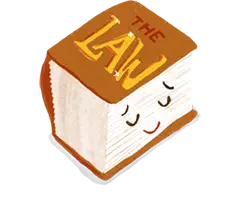Topic
Food and water safety
This page contains different parts of laws about Food and water safety, within the topic of Health and wellbeing.

Important laws about Food and water safety
Civil Defence Emergency Management Act 2002
Important services like power, water, and phone networks that people need every day
Schedule 1: Lifeline utilities
Local Government Act 2002
How the law about stopping water services changed
194: Power to stop water services
Local Government Act 2002
Councils had to check their water and cleaning services for the first time by mid-2005
285: First assessment of water and sanitary services
Local Government Act 2002
Food safety rules are more important than local council rules
152A: Effect of Food Act 2014 on bylaws
Search and Surveillance Act 2012
Entering a place with a warrant to find and remove harmful things
185: Powers of entry with warrant
Search and Surveillance Act 2012
Changes to the Food Act 1981 to make food laws clearer
253: Amendments to Food Act 1981
Resource Management Act 1991
This law explains what a farmer must include in their plan to protect water and nature on their farm.
217F: Contents of freshwater farm plan
Resource Management Act 1991
This part helps track efforts to make water cleaner by gathering information about fertiliser sales.
217N: Purpose of this Part
Resource Management Act 1991
This law explains what plant food with nitrogen in it means when talking about how it affects water and nature.
217O: Nitrogenous fertiliser defined
Resource Management Act 1991
People must follow rules about sharing information on fertiliser sales to help protect water.
217P: Obligation to comply with regulations
Resource Management Act 1991
Rules about recording and sharing information when farmers buy fertiliser to help protect water
217Q: Regulations relating to sales information on nitrogenous fertiliser
Resource Management Act 1991
Rules for checking how activities might affect drinking water sources
104G: Consideration of activities affecting drinking water supply source water
More laws about Food and water safety
About this project
What is this project?
This project is an experiment to take difficult language, and make it easier to read and understand for everyone.
How do we do this?
What's our process for taking the law and turning it into plain language?
Why is the law written like it is?
Laws are often hard to read. They use a lot of words and language we don't usually use when we talk.
Should we use AI for this?
What are the good and bad sides of using AI?
Is this information the actual law?
We hope that this information will help people understand New Zealand laws. But we think that it's important you talk to someone who understands the law well if you have questions or are worried about something.
You can talk to Community Law or Citizen's Advice Bureau about your rights.
Remember that AI can make mistakes, and just reading the law isn't enough to understand how it could be used in court.
You can talk to Community Law or Citizen's Advice Bureau about your rights.
Remember that AI can make mistakes, and just reading the law isn't enough to understand how it could be used in court.




